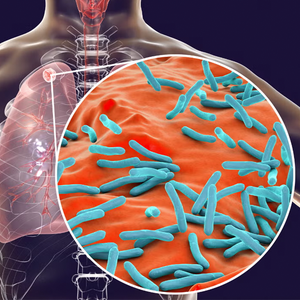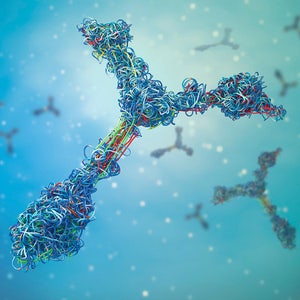
Lysosomal Storage Disease 6-plex Enzyme Panel
Lysosomal Storage Disease 6-plex Enzyme Panel
Lysosomal Storage Disease 6-plex Enzyme Panel
This test evaluates the activity of 6 enzymes associated with lysosomal storage disorders.
| Test Code | B2040 |
|---|---|
| Test Summary |
This test evaluates the activity of 6 enzymes associated with lysosomal storage disorders. |
| Turn Around Time | 3 days |
| Acceptable Sample Types | Dried Blood Spots , Whole Blood (EDTA) |
| Acceptable Billing Types | Institutional Billing , Self (patient) Payment |
| NY Approved | Yes |
| Self (patient) Price | $218.90 |
|---|---|
| Institutional Price | $218.90 |
**The CPT codes listed are in accordance with Current Procedural Terminology, a publication of the American Medical Association, and are provided for informational purposes only. CPT coding is the sole responsibility of the billing party.
This testing service has not been cleared or approved by the U.S. Food and Drug Administration. Testing services may not be licensed in accordance with the laws in all countries. The availability of specific test offerings is dependent upon laboratory location.
Test information
Test description
This test evaluates the activity of 6 enzymes associated with the following lysosomal storage diseases: Fabry disease, Gaucher disease, Krabbe disease, MPS I (Hurler syndrome), Niemann-Pick disease and Pompe disease
Indications for testing
This enzyme panel may be appropriate for individuals with a clinical suspicion of lysosomal storage disorders and/or individuals with a family history of lysosomal storage disorders.
Condition description
The lysosomal storage disorders (LSD) are a diverse group of inherited conditions caused by the defective function of specific lysosomal proteins. It is estimated that there are more than 50 different types. The disease course of these conditions is generally progressive, but the age of onset, nature and severity of symptoms can be variable between the disorders. Common symptoms of lysosomal disorders include hepatosplenomegaly, coarsening of facial features, short stature, corneal clouding, dysostosis multiplex and neurological regression. The combined prevalence of LSDs is estimated to be 1 in 7,000 births.
Test methods and limitations
Tandem mass spectrometry analysis can be coupled with liquid chromatography, a technique referred to as LC-MS/MS. In this methodology, chromatography is used to separate analytes of interest prior to measurement by the mass spectrometer. This separation reduces interference from matrix components and can also allow for the measurement of analytes that have the same mass (isobaric species), thereby improving analytical specificity compared to MS/MS.
Detailed sample requirements
Dried Blood Spots
| Collection Container(s) |
Dried blood spot card |
|---|---|
| Collection |
Follow kit instructions. Briefly, allow blood to saturate the card until indicated areas are filled and blood has soaked through the card. Air dry the card at ambient temperature for at least 3 hours.
|
| Sample Condition |
Follow the instructions provided with the collection set. Store the dried blood at ambient temperature for up to two days. If the specimen cannot be sent as soon as it is dry, the filter paper should be placed in a sealable plastic bag and stored in a refrigerator (≤ 8°C) or preferably in a freezer. |
| Shipping |
Follow kit instructions. Double bag and ship overnight at ambient temperature. |
Whole Blood (EDTA)
| Collection Container(s) |
EDTA (purple top) |
|---|---|
| Collection |
Infants (< 2-years): 2 to 3 mL; Children (>2-years): 3 to 5 mL; Older children and adults: Minimum 5mL. The blood tube should be inverted several times immediately after blood collection to prevent coagulation. |
| Sample Condition |
Store at ambient temperature. Do not refrigerate or freeze. |
| Shipping |
Ship overnight at ambient temperature ensuring receipt within 5-days of collection. |
| SPECIAL SAMPLE INSTRUCTIONS |
Clotted or hemolyzed samples are not accepted. |
Resources


How To Order
Choose Your Test
Select the correct test for your patient, and download and fill out the Clinical Genomics test requisition form.
Collect Sample
Obtain a sample for testing from the patient using one of the provided Revvity Omics test packs.
Send Samples
Send samples and all required forms back to Revvity for processing using pre-paid shipping label.
How can we help you?
We are here to answer your questions.







































